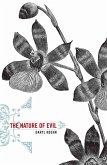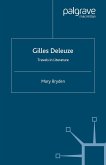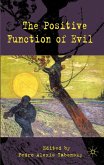When human beings do horrifying things, are they evil? By exploring such popular literature as The Talented Mr. Ripley , Dante's Inferno , The Turn of the Screw , and The Strange Case of Dr. Jekyll and Mr. Hyde , Koehn illustrates that the roots of human violence are not true evil but a symptom of our failure to really know who we are. It is this lack of understanding of ourselves that can lead humans to perform horrifying deeds, rather than 'evil' itself. This is a deep look into human nature, its beauty and its failings. The Nature of Evil offers an insightful and engaging exploration at a time when we are all struggling to understand the roots of violence and suffering.
'Evil is a palpable destructive force in our lives. With precision and energy Daryl Koehn unpacks this phenomenon and offers us a shockingly straightforward thesis. Evil, all human suffering, is caused by our narcissistic preoccupation with self and our failure to understand who we are and what we want and need. Koehn claims that we are both the source and victim of our own suffering. This is a must read for every student of the human condition.' - Al Gini, Associate Editor, Business Ethics Quarterly, and author of The Importance of Being Lazy
'Koehn's discussion of literary paradigms is fresh, interesting and beautifully expressed, making one wish all literary criticism were as good as this.' - A. L-S, The Heythrop Journal
'Koehn's discussion of literary paradigms is fresh, interesting and beautifully expressed, making one wish all literary criticism were as good as this.' - A. L-S, The Heythrop Journal








